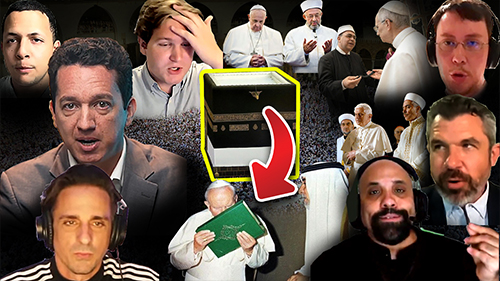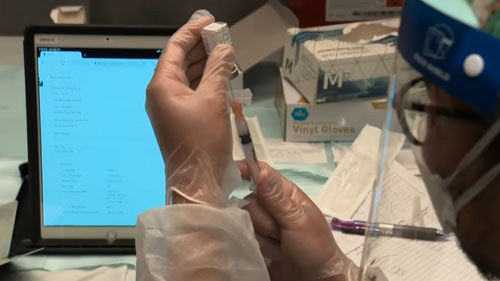| Recent Featured Videos and Articles | Eastern “Orthodoxy” Refuted | How To Avoid Sin | The Antichrist Identified! | What Fake Christians Get Wrong About Ephesians | Why So Many Can't Believe | “Magicians” Prove A Spiritual World Exists | Amazing Evidence For God | News Links |
| Vatican II “Catholic” Church Exposed | Steps To Convert | Outside The Church There Is No Salvation | E-Exchanges | The Holy Rosary | Padre Pio | Traditional Catholic Issues And Groups | Help Save Souls: Donate |  |









 " />
" /> " />
" /> " />
" /> " />
" /> " />
" />




Objection 13): John XXII was a heretic, who was even denounced by Cardinal Orsini as a heretic, yet he remained the pope.
Answer: John XXII was not a heretic, and his reign is no proof that heretics can be popes.
First, we want the reader to consider something very interesting: when Ferrara (the person launching this objection) is discussing John XXII, notice that the affair is exaggerated. He doesn’t hesitate to label it as an example of actual heresy. But when he is addressing the clear heresies of the Vatican II “popes”, they are all diminished so much that he denies that any of them even constitute heresy. For instance:
Okay, so none of the clear heresies from John Paul II and Paul VI (e.g., teaching that there are saints in other religions; stating that we shouldn’t convert non-Catholics; etc.) even constitute heresy, according to Ferrara; but the case of John XXII certainly rose to the level of heresy. What complete nonsense! Does anyone not see the profound hypocrisy and utter dishonesty here? When Ferrara and other non-sedevacantists feel that it is an advantage to belittle the heresy, they raise the bar for heresy, so that basically nothing rises to the level of actual heresy. But when they deem it useful to exaggerate a heresy (as in the case of John XXII), because they think that it will be useful in opposing sedevacantism, they overstate it and make it seem much worse than it was.
The fact of the matter is that John XXII was not a heretic. John XXII’s position that the souls of the blessed departed don’t see the Beatific Vision until after the General Judgment was not a matter that had yet been specifically defined as a dogma. This definition occurred two years after Pope John XXII’s death by Pope Benedict XII in Benedictus Deus,[3] but apparently Ferrara didn’t feel that it was important to mention that fact.
The fact that Cardinal Orsini denounced John XXII as a heretic doesn’t prove anything, especially when we consider the context of the events. To provide a brief background: John XXII had condemned as heretical the teaching of “the Spirituals.” This group held that Christ and the apostles had no possessions individually or in common. John XXII condemned this view as contrary to Sacred Scripture and declared that all who persistently adhere to it are heretical.[4] “The Spirituals” and others like them, including King Louis of Bavaria, were condemned as heretics.
When the controversy about John XXII’s statements on the Beatific Vision occurred, the Spirituals and King Louis of Bavaria profited by it and accused the pope of heresy. These enemies of the Church were supported by Cardinal Orsini, the man Ferrara mentions in his article.
With this background, we can see that Ferrara’s statement that “Cardinal Orsini called for a general council to pronounce the pope a heretic…” takes on a different light: Yes, Cardinal Orsini and his good friends: the excommunicated heretics. In fact, in his book Dogmatic Theology, even Ferrara’s own “pope” notes that the scandal was exploited by the enemies of the Church for political ends:
Ferrara places himself right in the company of the enemies of the Church with his exaggeration of the case of John XXII. John XXII was not a heretic. In addition to the fact that the matter had not yet been specifically defined as a dogma, John XXII also made it clear that he bound no one to his (false) opinion and was not arriving at a definitive conclusion on the matter:
All of this serves to show that John XXII was not a heretic. He held a personal opinion that was dead wrong, one which he explicitly declared was nothing more than opinion. In fact, despite his significant error, John XXII was quite vigorous against heresy. His condemnation of the Spirituals and King Louis of Bavaria is proof that he did condemn heresy. To compare him to the Vatican II antipopes who don’t even believe that heresy exists is utterly ridiculous. As established already, Benedict XVI doesn’t even believe that Protestantism is heresy! It’s absurd that anyone would obstinately (in the face of these facts) assert that this man is a Catholic. The fact is that wherever non-sedevacantists turn (to the dogma of the Papacy, or the actions of Luther, etc.), they are refuted. Indeed, since we’re on the topic of John XXII and the General Judgment, it should remembered that Benedict XVI denies perhaps the most central Catholic dogma with regard to the General Judgment: the Resurrection of the Body, as we demonstrated in the section on his heresies.
Therefore, when non-sedevacantists bring up the issue of John XXII and the Last Judgment, they do nothing except remind us of another dogma that Benedict XVI denies and another example of why he is not the pope.
See other Answers to the Most Common Objections Against Sedevacantism
[1] Chris Ferrara, “Opposing the Sedevacantist Enterprise,” Catholic Family News, August 2005, p. 21.
[2] Chris Ferrara, “Opposing the Sedevacantist Enterprise,” Catholic Family News, August 2005, p. 21.
[3] Denzinger 530.
[iv] Denzinger 494.
[4] The Catholic Encyclopedia, “John XXII,” Vol. 8, 1910, p. 433.
[6] Benedict XVI, Dogmatic Theology, The Catholic University of America Press, 1977, p. 137.
[7] The Catholic Encyclopedia, Vol. 8, p. 433.
[8] Benedict XVI, Introduction to Christianity, p. 349.
[9] Benedict XVI, Introduction to Christianity, pp. 357-358.
Sign up for our free e-mail list to see future vaticancatholic.com videos and articles.
Recent Content
^